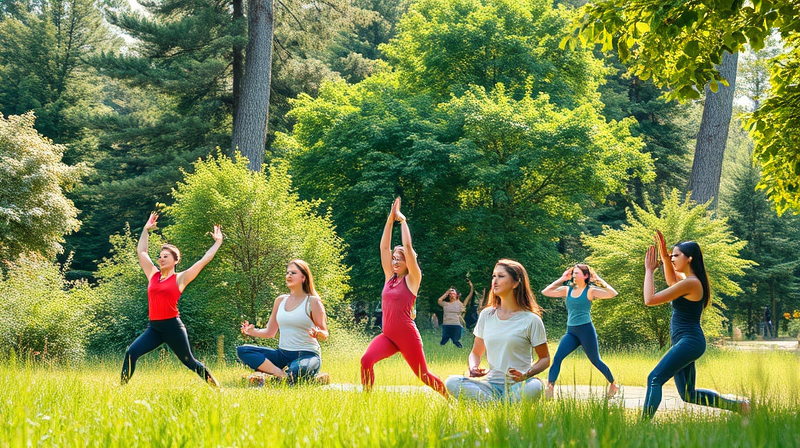In today’s fast‐paced world, the link between exercise and mental health is receiving well‐deserved attention. With emerging trends and solid research findings, staying physically active now stands out as a powerful tool to nurture psychological well-being. As we navigate through 2025, understanding and integrating regular physical activity into our daily lives may prove essential to creating a happier, more resilient future.
Recent research has shed light on the profound impact that exercise can have on mental functioning. Studies reveal that even brief participation in physical activities, whether it is a daily walk or a short run, can result in significant improvements in mood, cognitive sharpness, and overall mental balance.
Unlocking the Benefits of an Active Lifestyle
One of the most inspiring aspects of current research is the recognition that exercise is more than just a physical regimen; it is a holistic approach to improving quality of life. Physical activity instigates changes in brain chemistry through processes that promote neural growth, reduce inflammation, and enhance the release of endorphins, the body’s natural mood lifters.
This neural growth and endorphin release lay the foundation for many traditional mental health benefits, including:
- Reduction of stress: Engaging in exercise can help lower levels of stress hormones. By actively reducing tension and promoting calm, exercise is key to improving emotional stability.
- Enhanced cognitive function: Regular physical activity supports better memory, sharper thinking, and improved clarity, making it a boon for both the young and the aging brain.
- Improved self-esteem: A routine that includes exercise nurtures a sense of achievement, thereby fostering self-confidence and self-worth.
Significantly, researchers now affirm that even 15 minutes of running or an hour of walking can decrease the risk of developing severe depression by as much as 26%. This comforting statistic motivates many to view exercise as a preventative strategy rather than a last resort after symptoms appear.
Furthermore, new trends in the integration of physical activity into everyday life are emerging. Fitness routines are becoming more personalized by leveraging data and technology. Such advancements allow individuals to design exercise routines that perfectly align with their personal goals, further reinforcing the mental health benefits.
Exercise also enhances social interaction. Group-based fitness events and community outdoor activities not only provide physical benefits but also help combat the pervasive effects of loneliness. Many fitness enthusiasts find that the friendships and supportive communities built around a shared love for exercise add another important layer to mental health improvement.
Recent studies have demonstrated that physical activities, particularly in outdoor settings, contribute to a holistic form of well-being. Embracing these opportunities can lead to a blend of occupational and recreational satisfaction, ultimately filling one’s day with purpose and positivity.
For those looking to incorporate physical activity into their regime, the path forward might look like this:
- Start small: Gradually introducing even a modest amount of exercise can lead to significant mental benefits over time.
- Focus on enjoyment: Choose activities that you love. This makes it easier to stick to a routine and transform exercise into a fulfilling habit.
- Practice mindfulness: Use your exercise time to connect with both your body and mind, making the experience more enriching.
- Explore nature: Take advantage of outdoor activities. Fresh air and natural surroundings further enhance the mood-boosting properties of exercise.
- Maintain consistency: Consistency is key to harnessing the full spectrum of mental health benefits that exercise offers.
The encouraging news is that these findings aren’t reserved solely for people already dealing with mental health challenges. In fact, exercise can serve as a robust line of defense against the onset of depression and anxiety. Taking control of one’s movement is therefore equally an act of self-care and an empowering strategy to improve life’s overall quality.
Importantly, the integration of regular exercise into clinical practices is slowly becoming the norm, with healthcare providers and mental health professionals advocating for active lifestyles as a complement to traditional therapies. This progressive approach not only reduces reliance on medication but also helps mitigate potential side effects associated with long-term pharmaceutical use.
By focusing on the lifestyle changes that foster regular physical activity, communities around the world are learning to value self-care and proactive mental health practices. The future is brighter for those who choose to embrace the link between physical health and emotional stability.
Ultimately, being active is not merely a physical pursuit—it is a key to unlocking greater psychological resilience and a more joyful existence. Whether you are just starting to explore exercise as a way of caring for your mental health or you’re a seasoned enthusiast, the promise of improved well-being is a powerful motivator to keep moving forward.







